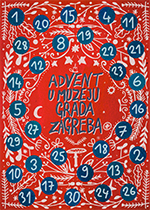The great Croatian composer Ivan pl. Zajc (the pl. in the name is an indication of aristocratic birth) was born in Rijeka in 1832. He studied at the Conservatory in Milan, lived and worked for several years in Vienna. He associated with numerous students from Zagreb, including August Šenoa.
Urged by patriotic feelings, he abandoned a respected and profitable job in Vienna and in 1870 arrived in Zagreb, where he at once became director of the opera company and took over the management of the school of the Croatian Musical Institute. Not only did he really establish the opera as an institution in Zagreb, but he enriched the art of opera by putting on numbers of works of his own and of foreign and domestic composers.
His best known work is the opera Nikola Šubić Zrinski, which became a focal point for patriotic enthusiasm.
Coming to Zagreb, he settled down in the Upper Town, in quiet Visoka Street, which looked out over the green of Tuškanac. The study of Maestro Zajc found a home in the Museum of the City of Zagreb, where it has been carefully looked after for more than seven decades. He created his work in this study until the end of his life. As well as being active in organization and in teaching, he created a considerable oeuvre in Zagreb, one containing more than a thousand works. The city councillors, aware of how much he had done for the city, gave him a certificate of honorary citizenship. Attaining a ripe old age, he died in his home in Visoka Street on December 16, 1914. Šenoa and Zajc, two friends in their youth, could hardly have imagined that one day they would share the same room in the Zagreb City Museum.
Nada Premerl

